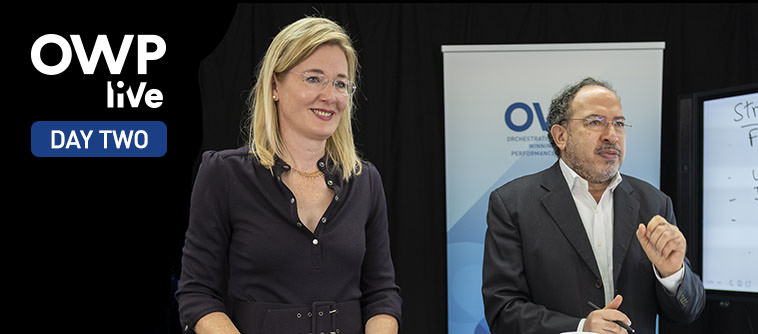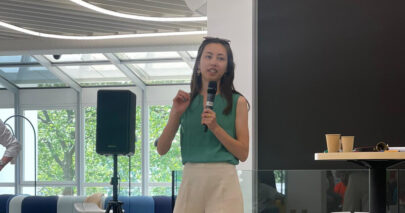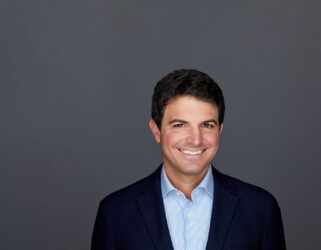Participants and IMD’s experts shared insights to enhance leadership skills and unlock the secrets of winning performance amid global uncertainty on the second day of OWP Live.
How diversification, purpose and stakeholder power turned OCP around
The phosphate giant’s successful transformation shows how to do well and do good.
Making money and doing good are often portrayed as antitheses. But Mostafa Terrab, chairman and chief executive officer of Morocco’s OCP Group, said that such apparent opposites can be reconciled in his keynote address on the second day of OWP.
Terrab detailed how the group had turned from being a parastatal entity into a limited company, borrowed heavily to invest in its ambitious move downstream and then diversify into adjacent areas. In the process, sales, earnings and employment rocketed, generating valuable dividends for the state, the main shareholder.
IMD President Jean-François Manzoni queried whether OCP had not feared short term financial damage because of the longer run investment in broader social, educational and other goals. “It is indeed accepting the benefit will only be in the long run,” he observed.
“We would never have been able to do this if our shareholder hadn’t been the state,” Terrab acknowledged. “It is accepting short term trade-offs. Fortunately, some, at least, such as the push into renewable electricity rather than relying on much more expensive grid power, paid off remarkably quickly.”
Dare to lead your organization through a digital and cultural business transformation
Innovation, customer centricity and agility are important for digital business transformation to succeed, participants learned during the session, “Leading digital and cultural transformation for greater resilience.”
Professor of Leadership Katharina Lange and Professor of Strategy and Technology Management Tawfik Jelassi were joined by John Davison, former CEO of Zuellig Pharma, an Asian pharmaceutical distribution company, to discuss how to lead digital and cultural transformations.
The experts shared a new, three-part case study on Zuellig Pharma’s evolution into a data-driven pharmaceutical distribution company.
“Digital business transformation is not an end in itself, it is a means to an end,” said Jelassi.
When it came to revamping company culture, Zuellig Pharma’s biggest success resulted from implementing a common cause that aligned the team around key measures and objectives.
“Win people’s hearts to penetrate into their mind,” said Davison. “For us, this was the goal of making healthcare more accessible for everyone and bringing top drugs to countries in Southeast Asia that were in need.”
Lange added: “If you want to empower your people, encourage them to use the freedom within their frame and ensure they have the capabilities to perform.”
By tackling strategic imperatives from 2014-2019, Zuellig Pharma was in good shape to weather the storm of the pandemic, with a 15% compounded annual growth rate over the past five years.
Managing yourself to stay at peak performance
During a crisis, your role as a leader is more critical – and also more challenging – than ever. This means that you must be consciously looking after yourself to maintain peak performance.
Jean-François Manzoni, the President of IMD, outlined strategies for “self-care” in his OWP liVe session. They included building up a physiological foundation based on the inter-dependent tripod of nutrition, exercise and sleep.
Manzoni says that self-care also requires you to overcome certain “cognitive challenges” that will enable you to ensure effective, data-based decision making, and to also maintain a clear sense of your priorities, to help the organization and its members to stay clear of both inertia and hyper-activity.
Last but not least, he says maintaining peak performance through the crisis will require you to understand and manage your own emotions, as well as those of your colleagues. “You cannot manage what you’re not aware of; being able to identify and name your emotions will be very helpful,” says Manzoni.
It is also helpful to practice mindfulness (starting with conscious breathing exercises), to nurture your compassion for others, and to be grateful, or remind yourself regularly of how lucky you are.
It is challenging to develop these practices, and they may seem counter-intuitive, but Manzoni says they are necessary in order for us to become better versions of ourselves, as both leaders and human beings.
Five digital marketing strategies to be more customer-centric than your competitors
Companies need to add value for customers by solving their headaches and giving them the best experience – technology is only an enabler, according to Professor Dominique Turpin, Dentsu Chaired Professor of Marketing.
“If you want to survive in the new digital world, you need to know your customers better than any one of your competitors and add value,” Professor Turpin said. “You have to start with the customer experience and work backwards to the technology.”
Turpin offered five digital marketing strategies to help companies add value for customers.
- Using digital technology, fix the basics and solve your customers headaches
- Radically improve the buying experience by adding intelligence to products
- Turn products into a personalized experience by providing meaningful value
- Create connections to communities
- Integrate multiple products
He also suggested IMD’s HAVE model as a pathway to build an agile organization.
Humility: Agile leaders recognise they don’t have all the answers and integrate the younger, tech-savvy generation to deliver customer-centric solutions.
Adaptation: Changing your mind used to be seen as a sign of indecision. Today, agility means change your mind based on new information.
Vision: Agile leaders have a clear sense of long-term direction, even amid short-term uncertainty.
Engagement: Agile leaders listen, interact and communicate with internal and external stakeholders, combined with an interest in emerging trends.
Balancing ethical choices with the technological possibilities of data
In the grey area that constitutes digital ethics, Öykü Işık, Professor of Digital Strategy and Cybersecurity, explained how companies should put in place comprehensive initiatives to protect themselves and their consumers.
“More often than not,” she said, “privacy and cybersecurity are not top of the agenda.” Yet, they cannot be neglected if a company wishes to handle its client data in an openly ethical and transparent manner.
Defining digital ethics, which encompasses data handling, algorithms, programming, hacking, AI and more, raises broad issues of the morals that govern ethical behavior. Professor Işık said that “we try to associate our personal values with this, but organizations don’t always have the same moral values as individuals, thus digital ethics initiatives need a solid governance.”
As digital trust has been corroded by scandals perpetrated, in particular, by tech giants, and consumers now distrust data and information tracking on social media, news and searches, what are the options when that which is legal is not necessarily ethical?
Professor Işık explained, “Technology shows us what we can possibly do with data; laws and regulations give us constraints and show us what we’re allowed to do; ethics tell us what we should do, what the right thing to do is.”
Trust, respect and shared values: key leadership skills for high-performance teams
Influencing and persuading your people can bring out the best in your team and it relies on your informal authority, said Francisco Szekely, Adjunct Professor Global Leadership and Sustainability.
In times of disruption, teams look to their leader’s informal authority to gain courage, purpose and motivation in the face of external challenges, he said. Without that secure base from which to draw psychological safety, teams can flounder in a state of discomfort and give in to panic responses.
In his session, “Influence and persuasion: use your informal authority”,
Szekely suggested determining a clear agenda, identifying the strongest allies within the network, and deploying an effective persuasion journey to influence and persuade from a position of trust and credibility.
However, leaders had to model consistency and authenticity. “This is not about a Machiavellian manipulation process. Influence and persuasion are earned through sharing values, gaining trust and winning respect, and high-performance teams cannot function without those values,” said Szekely.
Participants were keen to discuss how to read unclear signalling from colleagues during negotiation. Remote connectivity posed a challenge that exacerbated this. Szeleky suggested stepping away from rational communication, inviting opinions or checking in with how colleagues were feeling to realign connections in such cases.
“We humans are irrational beings and so to appeal to only the rational side ignores instinct and gut feelings,” he said.



